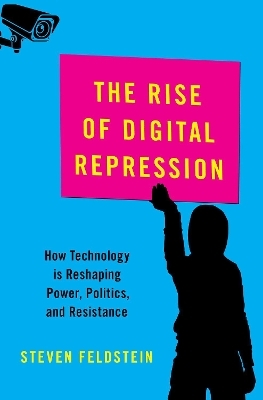
The Rise of Digital Repression
Oxford University Press Inc (Verlag)
978-0-19-005749-7 (ISBN)
In The Rise of Digital Repression, Steven Feldstein documents how the emergence of advanced digital tools bring new dimensions to political repression. Presenting new field research from Thailand, the Philippines, and Ethiopia, he investigates the goals, motivations, and drivers of these digital tactics. Feldstein further highlights how governments pursue digital strategies based on a range of factors: ongoing levels of repression, political leadership, state capacity, and technological development. The international community, he argues, is already seeing glimpses of what the frontiers of repression look like. For instance, Chinese authorities have brought together mass surveillance, censorship, DNA collection, and artificial intelligence to enforce their directives in Xinjiang. As many of these trends go global, Feldstein shows how this has major implications for democracies and civil society activists around the world.
A compelling synthesis of how anti-democratic leaders harness powerful technology to advance their political objectives, The Rise of Digital Repression concludes by laying out innovative ideas and strategies for civil society and opposition movements to respond to the digital autocratic wave.
Steven Feldstein is a senior fellow at the Carnegie Endowment for International Peace in the Democracy, Conflict and Governance Program. Previously, he was the holder of the Frank and Bethine Church Chair of Public Affairs and an associate professor at Boise State University. He served in the Obama administration as Deputy Assistant Secretary of State for Democracy, Human Rights and Labor with responsibility for Africa policy, international labor affairs, and international religious freedom, and as Director of Policy at the US Agency for International Development. He has also served as Counsel on the US Senate Foreign Relations Committee under former chairmen Joe Biden and John Kerry. He received his B.A. from Princeton and his J.D. from Berkeley Law.
Acknowledgments
Chapter 1: Introduction
Chapter 2: Motivations and Incentives for Digital Repression
Chapter 3: Global Patterns of Digital Repression
Chapter 4: Thailand's Strategy of Control
Chapter 5: Social Manipulation and Disinformation in the Philippines
Chapter 6: Transformation and Setbacks in Ethiopia
Chapter 7: How Artificial Intelligence and Big Data Are Transforming Repression
Chapter 8: Responding to Digital Repression
Appendix 1
Appendix 2
Appendix 3
Appendix 4
Notes
Index
| Erscheinungsdatum | 29.04.2021 |
|---|---|
| Reihe/Serie | Carnegie Endowment for International Peace |
| Zusatzinfo | 9 b&w halftones, 18 b&w line drawings, 13 tables |
| Verlagsort | New York |
| Sprache | englisch |
| Maße | 236 x 157 mm |
| Gewicht | 567 g |
| Themenwelt | Sozialwissenschaften ► Politik / Verwaltung ► Europäische / Internationale Politik |
| Sozialwissenschaften ► Politik / Verwaltung ► Vergleichende Politikwissenschaften | |
| ISBN-10 | 0-19-005749-1 / 0190057491 |
| ISBN-13 | 978-0-19-005749-7 / 9780190057497 |
| Zustand | Neuware |
| Informationen gemäß Produktsicherheitsverordnung (GPSR) | |
| Haben Sie eine Frage zum Produkt? |
aus dem Bereich


